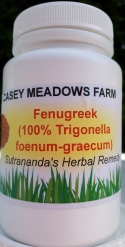Health benefits of Fenugreek
Trigonella foenum graecum
Fenugreek is a herb that is normally seen growing in the Mediterranean. It’s also used to take care of many different health issues in Egypt, Greece, Italy, and South Asia, while the leaves and seeds are chiefly used as a culinary spice. Some of the active components in fenugreek are alkaloids, lys and L – tryptophan, in addition to steroidal saponins (tigogenin, diosgenin, neotigogenin and yamogenin).

1) Anti-Inflammatory Properties
Many herbalists recommend fenugreek for lesions, healing rashes, and boils for its anti-inflammatory properties. Distribute the paste on the affected region. Commission E, a German authorities group that assesses the safety and effectiveness of herbs, has authorized it to treat gastritis. The plant’s seeds include mucilage, a gummy substance that coats the lining of the bowel, soothing gastrointestinal inflammation.
2) Lowers Cholesterol Levels
Fenugreek seeds aid in lowering LDL cholesterol within
the blood and raises HDL within the body. They help in
lowering cholesterol and triglycerides. It raises the
creation of bile acids. The liver makes use of
cholesterol for the creation of bile acids and
subsequently reduces cholesterol. Saponin and
galactomannan also assists in cholesterol absorbtion.
3) Helps Against Diabetes
Fenugreek happens to be one of the healthiest foods that
a person can have if they have diabetes. It’s been found
to reduce the blood glucose level within the body and
raise the tolerance of glucose.
4) Helps With Digestion
Fenugreek helps to improve digestion. It releases
mucilage, which creates a protective layer for gut and
bowels, and lowers indigestion and gastric problems.
Fenugreek has been discovered to stop constipation and
increases bowel movement.
5) Heartburn and Acid Reflux
As I said, fenugreek seeds include lots of mucilage,
which helps with soothing an inflamed gastrointestinal
tract by being placed on the lining of the intestine and
stomach. In order to utilize this as an effective
treatment against heartburn, just scatter 1 teaspoon of
fenugreek seeds on your food. Another alternative would
be to consume them with water or juice and take one
teaspoonful of seeds prior to eating.
6) Helps With Weight Loss
Fenugreek seeds soaked in water immediately can be
consumed in the morning on an empty stomach to burn off
extra fat within your body. Fenugreek seeds are full of
fiber, which swells in the body and makes you feel less
hungry. Overeating can be prevented by adopting this
treatment in the morning and half an hour before dinner.
7) Makes Skin Healthy
Because fenugreek is anti-inflammatory it is used to
heal eczema, burns and boils. Grounded fenugreek seeds
along with water can be immediately placed on the acne
and zit marks to help get rid of them. Fenugreek mixed
with milk is used to help soften the skin. It also aids
against harmful sun radiation.
8) Nourishes the Hair
Fenugreek seeds are beneficial in making hair grow
healthy. Fenugreek seeds are a great source of protein
and nicotinic acid, which assists in cutting thinning
hair and baldness down. When applied it helps in
reducing dandruff and functions like a conditioner, when
you make a paste of the leaves.
9) Reduces Fever
Since the body is nourished by this herb, it is proven
to help reduce fever when taken with honey and lemon.
Some health food stores also sell teas that contain
fenugreek, which may be utilized to help increase one’s
immune system and break that fever.
10) Helps With Respiratory Conditions
Fenugreek seeds contain mucilage, a lubricating agent
which could reduce redness and soothe irritated mucus
membranes, making this herb helpful for treating
respiratory conditions, including bronchitis and coughs.
11) Prevents Cancer
Colon cancer may be prevented by fenugreek consumption.
The mucus membrane of the colon is protected through
this, therefore reducing the possibilities of cancer.
12) For Women
Fenugreek is proven to raise milk production in
lactating women. Fenugreek is advantageous for women
while pregnant and is really a source of iron. Fenugreek
tea is suggested for pregnant women as it reduces labour
pain and improves uterine contraction. Fenugreek
contains a substance called diogenin which behaves
similar to estrogens. It reduces stress, dizziness, and
sleeplessness and helps in cutting menopause symptoms.
The herb is also said to cause breast enlargement in
women.
13) For Men
Fenugreek is considered to be an aphrodisiac. It’s been
discovered to raise testosterone in men. In addition,
it’s anabolic and can help guys that are seeking to gain
muscle. A high testosterone level helps in with keeping
up one’s energy levels. It’s also efficient against the
pain of a hernia and E.D.
Fenugreek Side Effects
While fenugreek is normally regarded as safe, there are reports of a few mild side effects. When you use this herb topically on your skin it’s important to look out for skin irritations and rashes.
Using fenugreek when pregnant isn’t recommended, because it really has the potential to cause labor. If you want to have it and are pregnant, you need to do so only after you meet and consult with your physician.
If you’re now taking any oral medicines, you must be sure to only use the herb at least 2 hrs before or after these drugs. That is essential since the fiber in fenugreek has the capability to get in the way of the absorption of oral medications because of its mucilaginous fiber.
Regardless of the recorded fenugreek advantages to human health, be certain to ask your physician or primary healthcare provider prior to taking fenugreek. You should discuss taking this with your primary care provider if you’re on any medicines, or if you’re taking some other medication or herbal supplements, because fenugreek can change blood glucose levels and blood clotting factors.
|
||||||

